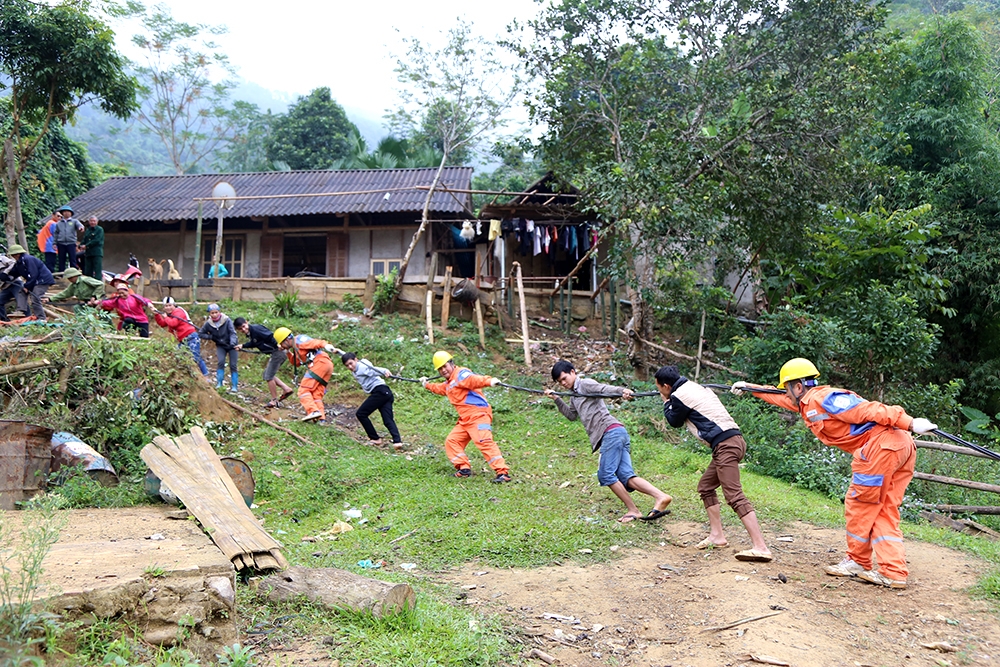
Many areas still have no electricity
Within the framework of the 7th session, on May 29, 2024, the 15th National Assembly discussed the socio-economic situation and state budget in 2024. The content that many National Assembly deputies were interested in was the results of providing electricity to people in ethnic minority and mountainous areas.
Delegate Doan Thi Le An (National Assembly Delegation of Cao Bang Province) said that with the special attention of the Party and State, the program of providing electricity to rural and mountainous areas has achieved some positive results; creating an important development step in the electrification of rural and mountainous areas.

With electricity, audio-visual equipment is increasingly used, improving cultural and spiritual life, raising people's knowledge; bringing fundamental, long-term benefits to localities, creating the basis for building sustainable new rural areas.
National Assembly Delegate Doan Thi Le An
Delegation of National Assembly Deputies of Cao Bang province
According to delegate Doan Thi Le An, providing electricity to rural and mountainous areas not only contributes to hunger eradication and poverty reduction but also contributes to sustainable development in disadvantaged areas; helps people change crop structure, change the scale and farming practices, increase crop productivity and processing of agricultural and forestry products, and increase income for rural people.
“However, there are still many villages and hamlets that have not yet used the national grid. We request that the Government, ministries and sectors continue to pay attention and mobilize maximum resources; arrange and balance capital sources from public investment to continue investing in providing electricity to people in ethnic minority and mountainous areas,” delegate An suggested.
Also interested in this content, delegate Hoang Quoc Khanh (National Assembly Delegation of Lai Chau Province) informed that in Lai Chau province, there are still 22 villages without electricity; concentrated in border communes, remote areas, and ethnic minority areas. Due to the lack of electricity, on the occasion of the 70th Anniversary of the historic Dien Bien Phu Victory, many people who were living witnesses of the victory that "resounded throughout the five continents and shook the world" did not have the opportunity to watch it live on television.
“In 2025, the 50th anniversary of the Liberation of the South and national reunification will be celebrated. Voters recommend that the State pay attention to investing so that people in areas without electricity can watch live television broadcasts of this important national event,” delegate Khanh suggested.
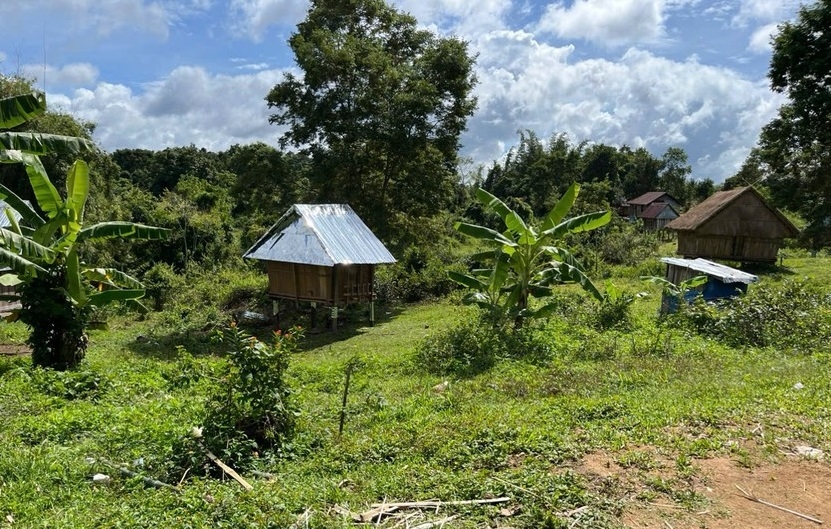
According to the report of the Ministry of Industry and Trade sent to the National Assembly deputies at the 7th session, there are still 160,000 households nationwide without electricity, 715,000 households need to upgrade power lines in 3,000 communes (including 1,075 border communes and extremely difficult areas). To "cover" the national grid in these areas, the investment capital required is about 29,000 billion VND.
However, this is general data for the whole country, without analyzing the current status of access to electricity in ethnic minority and mountainous areas, especially in remote, isolated and extremely disadvantaged areas. Therefore, the data on the current status of access to electricity from the fourth socio-economic information survey of 53 ethnic minorities (conducted after the 7th session of the 15th National Assembly) after being compiled by the General Statistics Office; analyzed by the Ethnic Committee and relevant agencies and organizations will provide the National Assembly deputies with a practical basis for discussion on the floor at the National Assembly sessions in 2025.
Correct data then the goal is achieved
In the Ethnic Affairs Strategy for the period 2021 - 2030, with a vision to 2045 approved by the Government in Resolution No. 10/NQ-CP dated January 28, 2022, the Government resolved that by 2025, 99% of households will have access to the national grid and other suitable sources of electricity. To achieve this goal, there must be accurate data from reviewing and investigating data on the current status of electricity access in ethnic minority and mountainous areas.
However, current data on the number of ethnic minority households and ethnic minority areas without electricity (including national grid and other power sources) is still inconsistent.
For example, in Cao Bang, according to data from the provincial Department of Industry and Trade, by the end of the second quarter of 2024, the whole province still had 83 villages, with over 6,700 households (accounting for 4.96% of the total number of households in the province) not using the national grid.
Previously, in 2019, the results of the third survey and collection of information on the socio-economic status of 53 ethnic minorities showed that out of a total of 2,483 villages in Cao Bang province, 2,290 had electricity (of which 2,087 villages had national grid electricity, 203 villages used other electricity sources) and 193 did not have electricity.
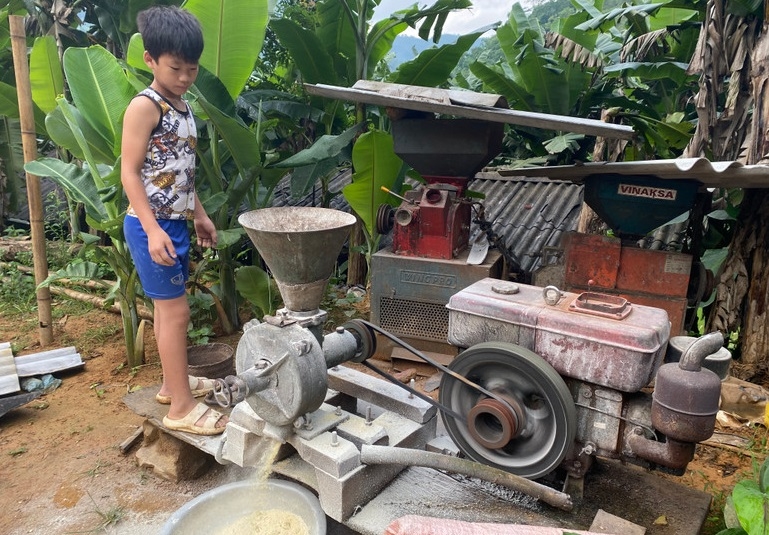
Thus, after nearly 5 years, Cao Bang has made efforts to provide electricity to 110 villages, currently only 83 villages have not yet accessed the grid. However, this data needs to be reviewed and re-examined; because it must take into account the work of merging administrative units at the village level of Cao Bang province from 2019 to present.
According to Resolution No. 27/NQ-HDND dated September 9, 2019 of the Cao Bang Provincial People's Council on merging and renaming hamlets and residential groups in the area, the whole province merged 1,870 hamlets and residential groups to establish 845 new hamlets and residential groups, equivalent to a 50% reduction in the number of village-level administrative units.
According to Document No. 3462/TTr-BCT dated June 15, 2021 of the Ministry of Industry and Trade, if the implementation period of the Rural, Mountainous and Island Electricity Supply Program is extended, by 2025, the Electricity sector will provide electricity to about 871,263 households of 6,811 villages and hamlets in 2,197 communes.
Of which, Bao Lam district merged 84 hamlets to establish 41 new hamlets; Bao Lac district merged 162 hamlets and residential groups to establish 79 new hamlets and residential groups.
These are the two localities with the largest number of households and areas without access to the national grid in Cao Bang province at present.
From the reality of Cao Bang province, looking at the whole country, the data on the current electricity situation needs to be reviewed and collected carefully. The inconsistency in data on the current status of electricity access exists right in the statistics of relevant agencies.
According to the summary report of the Rural, Mountainous and Island Electricity Supply Program for the period 2013 - 2020 of the Ministry of Industry and Trade, as of December 31, 2019, in rural areas, the rate of households using electricity reached 99.26%; only about 0.74% of rural households did not have access to electricity.
However, according to data from the survey and information collection on the socio-economic situation of 53 ethnic minorities in 2019 conducted by the General Statistics Office, the rate of ethnic minority households using national grid electricity reached 93.9% (2.5% of households used other electricity sources); 3.6% of ethnic minority households did not have access to electricity and had to use kerosene and other fuel sources for lighting.
According to a report by Vietnam Electricity Group (EVN), as of June 2019, 99.47% of the country had access to grid electricity (equivalent to 27.41 million households; of which, in rural areas, the rate of households with electricity reached 99.18%, equivalent to 16.98 million households.
At the same time (2019), the data on the current status of electricity access of 03 agencies and units is not consistent. So which data truly reflects the current status of electricity access in ethnic minority and mountainous areas?
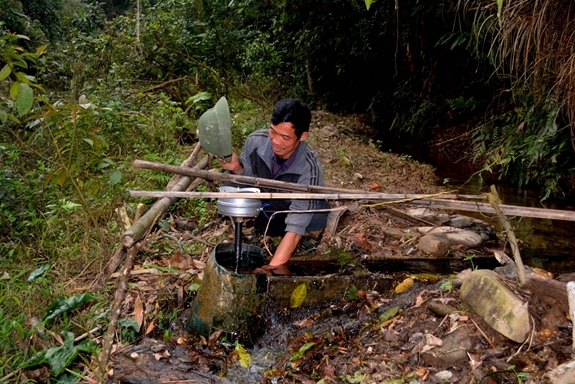
To answer this question, it requires coordination in the process of investigation, review and analysis of collected data on the current status of access to electricity in ethnic minority and mountainous areas. This is essential to complete the tasks in the Rural, Mountainous and Island Electricity Supply Program for the period 2021 - 2025.
The Resolution on the 2024 socio-economic development plan approved by the 15th National Assembly at its 6th session identified the task of accelerating the implementation of the Rural, Mountainous and Island Power Supply Program for the 2021-2025 period. Since 2021, the Government and the Ministry of Industry and Trade have focused on directing the implementation, but so far the investment budget has not been balanced.
Therefore, the proposal of the Ministry of Industry and Trade in Document No. 3462/TTr-BCT dated June 15, 2021 on extending the implementation period of the Rural, Mountainous and Island Electricity Supply Program to 2025 has not yet been implemented. The implementation period is only 01 year, while this is a project requiring large investment sources, therefore, the Government, ministries, branches and localities need to have a roadmap and priority order for implementation.
Identifying the socio-economic situation according to the commune survey: Ensuring land policy for ethnic minorities (Part 7)































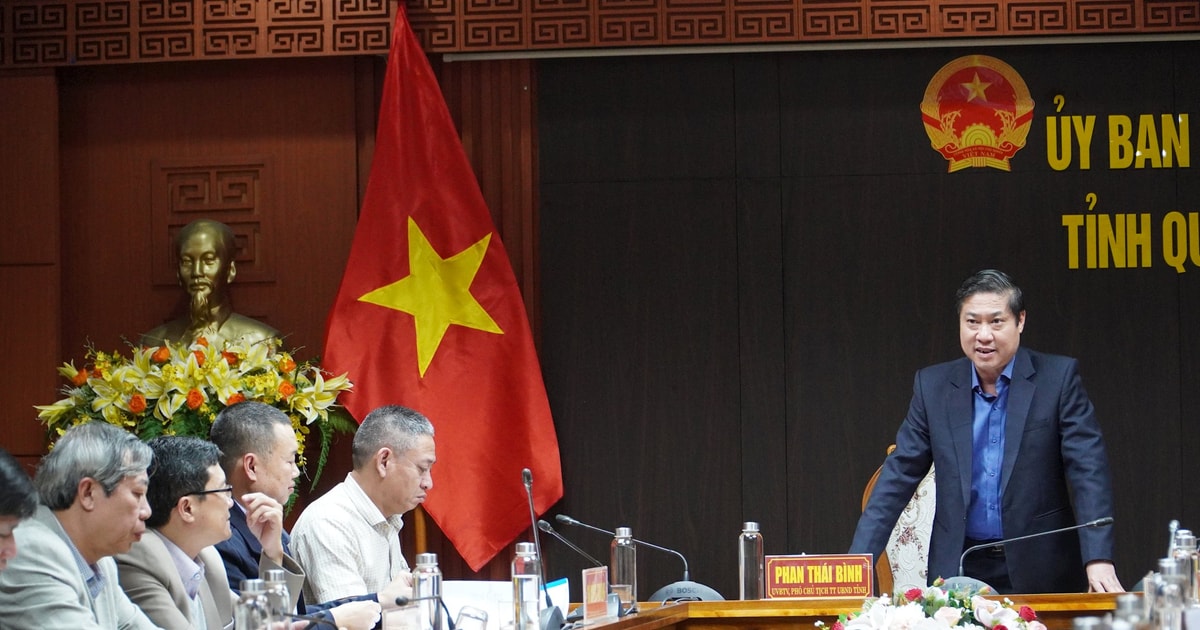
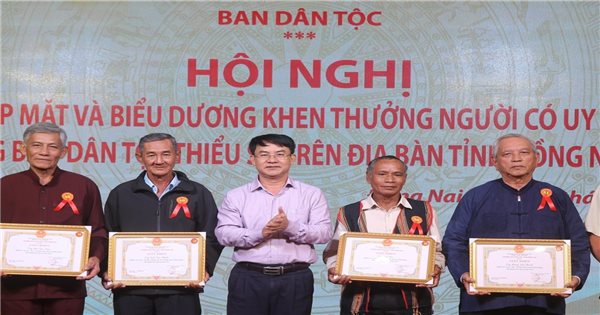

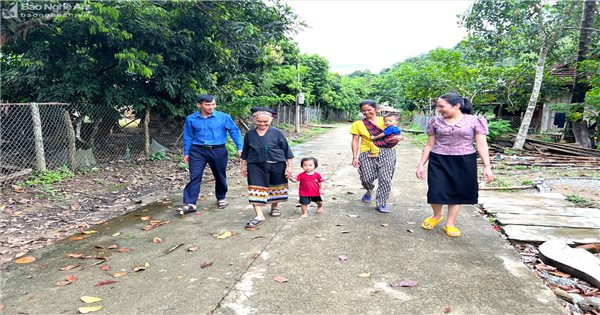
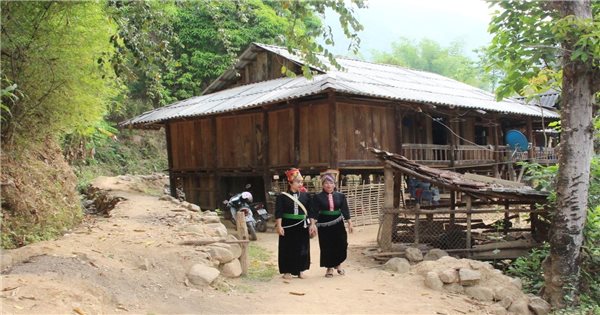
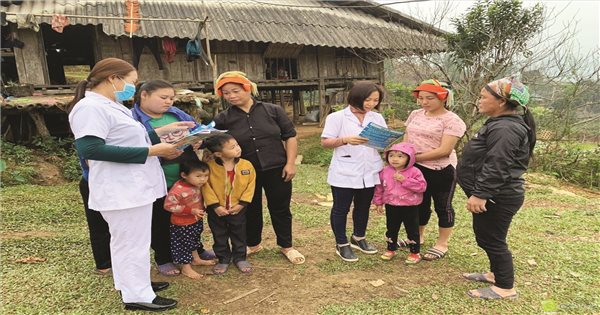



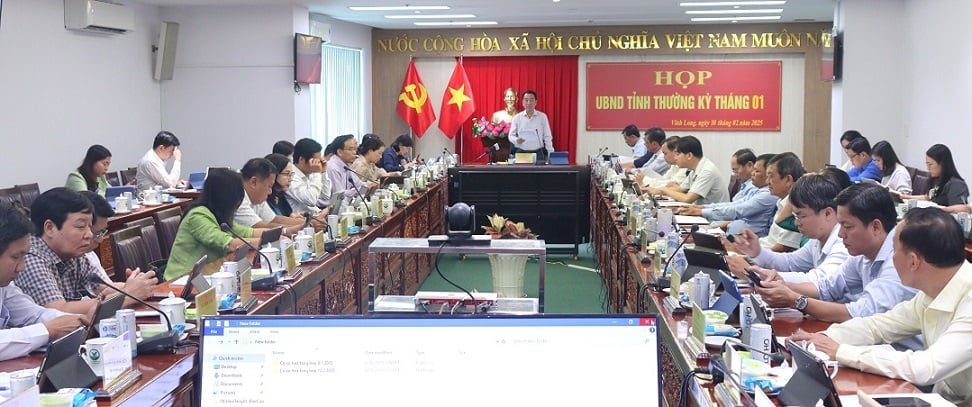

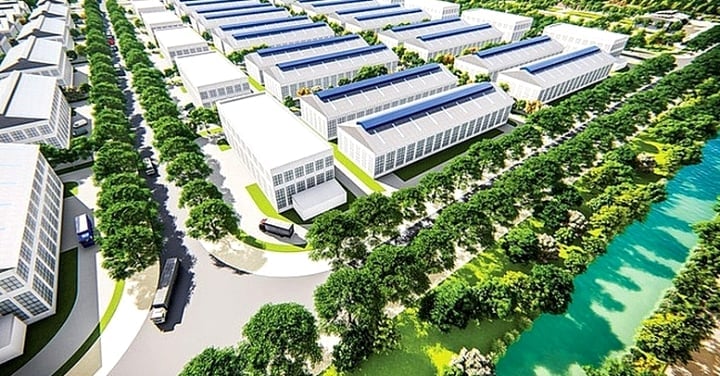
![Charming Vietnam [ Cat Tien National Park ]](https://vstatic.vietnam.vn/vietnam/resource/IMAGE/2025/2/12/c05c34322e4f4cac874e7f971dfaddca)
![Charming Vietnam [ Chau Doc ]](https://vstatic.vietnam.vn/vietnam/resource/IMAGE/2025/2/12/e96a46dceb5e41b1bcc3cf7dc6d54708)
![Charming Vietnam [ Phong Nha National Park ]](https://vstatic.vietnam.vn/vietnam/resource/IMAGE/2025/2/12/1cc2c12b6cb84938b32182cccf560b3c)

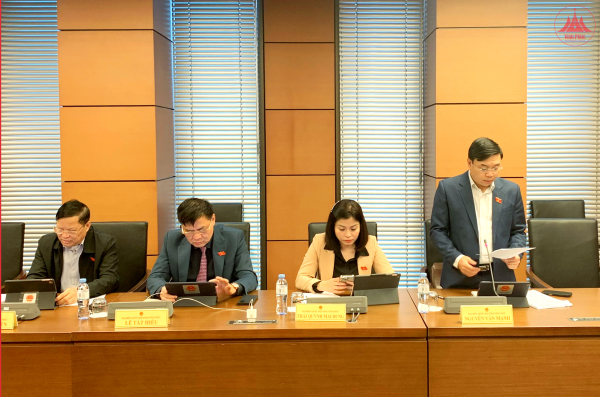

















Comment (0)